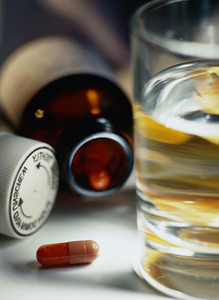One of Asia’s leading biotechnology companies, Biocon, announced on 31 October 2012 positive results from its global phase III study for its recombinant human insulin (Insugen). The study, which was carried out in type 1 diabetes mellitus (T1DM) patients, demonstrated comparable safety and efficacy compared to the originator product.
Positive results from phase III study with biosimilar human insulin
Biosimilars/Research
|
Posted 16/11/2012
 0
Post your comment
0
Post your comment

The multi-centre, randomized study was conducted in nearly 300, T1DM patients, and compared efficacy, safety and immunogenicity of Biocon’s regular human Insulin (Insugen R) and isophane human Insulin (Insugen N) against Novo Nordisk’s originator products, Actrapid and Insulatard. The trial met its efficacy endpoint by demonstrating non-inferiority in HbA1c endpoint at six months. Immunogenicity and safety as evaluated by hypoglycaemic events at the six-month time point were also similar.
Insugen R is short-acting human insulin, which offers post-meal control of glucose while Insugen N is long-acting human insulin, which offers basal control of glucose levels. Human recombinant insulin is used as a basal-bolus regimen or pump regimen and is most widely used by type 1 and type 2 diabetics in most parts of the world. Biocon’s Insugen is currently marketed in various countries, e.g. China and India.
The second part of the study, which aims to demonstrate additional safety and immunogenicity over one year, is ongoing and is expected to be completed by 2013 with the final results expected in 2014.
Biocon expects data from this ongoing study, along with extensive physicochemical and biological characterization; and pharmacokinetic and pharmacodynamic data generated to date comparing Insugen-R and Insugen-N with the originator products, to enable the Indian biotech to submit a robust dossier for marketing authorization in EU and other global markets.
The future looks bright for Biocon’s biosimilar insulin products. The company also announced in July 2012 positive results from a phase I comparative study conducted in Germany of its biosimilar insulin glargine in type 1 diabetes mellitus (T1DM) patients [1].
Diabetes is a growing market, with WHO reporting that in 2012 one in 10 adults has diabetes and research from UK showing a 74% rise in new cases of diabetes between 1997 and 2003.
Related articles
Biocon opens new research centre
Pfizer and Biocon’s biosimilar insulin deal is off
Reference
1. GaBI Online - Generics and Biosimilars Initiative. Positive results from phase I study with biosimilar insulin glargine [www.gabionline.net]. Mol, Belgium: Pro Pharma Communications International; [cited 2012 Nov 16]. Available from: www.gabionline.net/Biosimilars/Research/Positive-results-from-phase-I-study-with-biosimilar-insulin-glargine
Permission granted to reproduce for personal and educational use only. All other reproduction, copy or reprinting of all or part of any ‘Content’ found on this website is strictly prohibited without the prior consent of the publisher. Contact the publisher to obtain permission before redistributing.
Source: BBC, WHO
News
FDA approves Poherdy (first interchangeable pertuzumab) and Armlupeg (pegfilgrastim) biosimilars
EMA recommends approval for insulin glargine biosimilar Ondibta and denosumab biosimilar Osqay
General
Samsung Bioepis wins Pyzchiva case; Regeneron patent rulings threaten foreign biosimilars
Chinese biosimilars go global: growth, partnerships, and challenges
What is the future for the US biosimilar interchangeability designation

Biosimilars/Research Posted 05/06/2025
Biosimilar clinical efficacy studies: are they still necessary?

Biosimilars/Research Posted 27/05/2025
The best selling biotechnology drugs of 2008: the next biosimilars targets








Post your comment